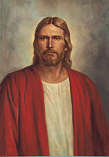
FAIR is a non-profit organization dedicated to providing well-documented answers to criticisms of the doctrine, practice, and history of The Church of Jesus Christ of Latter-day Saints.
mNo edit summary |
mNo edit summary |
||
| Line 203: | Line 203: | ||
{{FAQ | {{FAQ | ||
|q= | |q=Besides the difference in those who attend a stake council, are there any other procedures which differ from a bishop’s council? | ||
|a= | |a=Yes. In accordance with revelation in {{s||D&C|102|13-17}}, members of the stake high council draw lots. As the scripture notes: | ||
<blockquote>Whenever this [stake high] council convenes to act upon any case, the twelve councilors shall consider whether it is a difficult one or not; if it is not, two only of the councilors shall speak upon it, according to the form above written. But if it is thought to be difficult, four shall be appointed; and if more difficult, six; but in no case shall more than six be appointed to speak. The accused, in all cases, has a right to one–half of the council, to prevent insult or injustice. And the councilors appointed to speak before the council are to present the case, after the evidence is examined, in its true light before the council; and every man is to speak according to equity and justice. Those councilors who draw even numbers, that is, 2, 4, 6, 8, 10, and 12, are the individuals who are to stand up in behalf of the accused, and prevent insult and injustice.</blockquote> | |||
|quote= | |quote= | ||
|link= | |link= | ||
| Line 217: | Line 219: | ||
{{FAQ | {{FAQ | ||
|q= | |q=Who makes the decision about a disciplinary council’s outcome? | ||
|a= | |a=The decision is made by the bishop or stake president after hearing the evidence, consulting with the other members of the council, and after prayer. Latter-day Saints believe such leaders are entitled to divine revelation regarding God’s will in the matter. | ||
When the decision is made, the bishop or stake president asks the other members of the council whether they agree with or sustain the decision. Every effort is made to achieve unanimous support, but the decision is the bishop’s or stake presidents. | |||
|quote= | |quote= | ||
|link= | |link= | ||
| Line 231: | Line 234: | ||
{{FAQ | {{FAQ | ||
|q= | |q=What are the possible outcomes of a disciplinary council? | ||
|a= | |a=Disciplinary councils outcomes include: | ||
*A decision to take no action | |||
*Formal probation | |||
*Disfellowshipment | |||
*Excommunication | |||
|quote= | |quote= | ||
|link= | |link= | ||
| Line 245: | Line 252: | ||
{{FAQ | {{FAQ | ||
|q= | |q=What is formal probation? | ||
|a= | |a=Formal probation restricts some privileges of Church membership. These privileges are determined by the council according to the circumstances. Members under formal probation may also be invited to participate ''more fully'' in some Church-related behavior. The duration of formal probation varies. | ||
|quote= | |quote= | ||
|link= | |link= | ||
| Line 259: | Line 266: | ||
{{FAQ | {{FAQ | ||
|q= | |q=What is disfellowshipment? | ||
|a= | |a=Disfellowshipped members remain members of the Church, but have some privileges of membership restricted. They may not take the sacrament, hold Church callings, give talks or pray in Church, perform priesthood ordinances, or vote to sustain Church leaders. Other council and cautions may be provided by the council (e.g., to refrain from reading pornographic material). Disfellowshipment usually lasts at least one year. | ||
|quote= | |quote= | ||
|link= | |link= | ||
| Line 273: | Line 280: | ||
{{FAQ | {{FAQ | ||
|q= | |q=What is excommunication? | ||
|a= | |a=Excommunication is the most severe penalty imposed by a disciplinary council. It is reserved for the most grave offenses. Excommunicated members are no longer considered to be members of the Church, and they are under all the restrictions of disfellowshipment. They are also not entitled to pay tithes or offerings, or wear temple garments. Such an individual may continue to attend Church if their conduct is orderly. Excommunication always lasts at least one year. | ||
|quote= | |quote= | ||
|link= | |link= | ||
| Answers portal |
| Mormon FAQ |

|
 Frequently Asked Questions about Church Disciplinary Councils
Frequently Asked Questions about Church Disciplinary CouncilsIf you have a question about the whys, hows, or wherefores of Church Discipline in the Church of Jesus Christ of Latter-day Saints, our FAQ has the answer.
Whenever this [stake high] council convenes to act upon any case, the twelve councilors shall consider whether it is a difficult one or not; if it is not, two only of the councilors shall speak upon it, according to the form above written. But if it is thought to be difficult, four shall be appointed; and if more difficult, six; but in no case shall more than six be appointed to speak. The accused, in all cases, has a right to one–half of the council, to prevent insult or injustice. And the councilors appointed to speak before the council are to present the case, after the evidence is examined, in its true light before the council; and every man is to speak according to equity and justice. Those councilors who draw even numbers, that is, 2, 4, 6, 8, 10, and 12, are the individuals who are to stand up in behalf of the accused, and prevent insult and injustice.
|

FAIR is a non-profit organization dedicated to providing well-documented answers to criticisms of the doctrine, practice, and history of The Church of Jesus Christ of Latter-day Saints.
We are a volunteer organization. We invite you to give back.
Donate Now